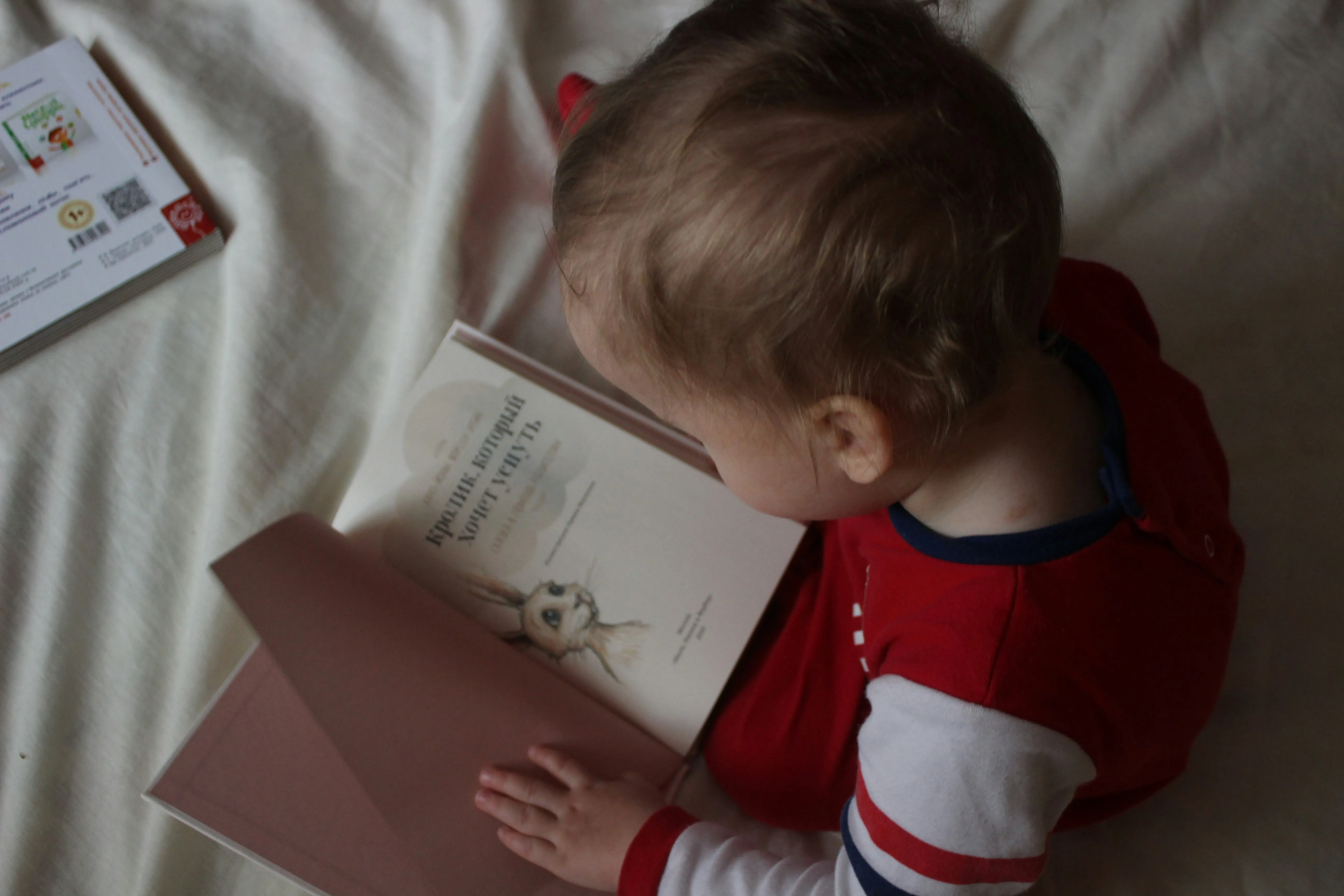Unlocking Early Childhood Cognitive Development Potential
Early Childhood Cognitive Development Potential
Early childhood is a crucial period of development, and during this time, cognitive skills begin to take shape. Cognitive development refers to a child's ability to think, learn, problem-solve, and process information. These skills lay the foundation for future learning and success in life. Understanding early childhood cognitive development is key to unlocking a child's full potential and ensuring their overall well-being. In this blog, we will explore the stages of cognitive development, the role of parents in fostering cognitive skills, and the impact of cognitive development on future success.
Understanding Cognitive Development in Early Childhood
During early childhood, rapid cognitive development takes place, influencing a child's thinking, reasoning, problem-solving, and learning abilities. This period is marked by important developmental milestones that lay the groundwork for a child's future cognitive skills. By understanding cognitive development in early childhood, parents, caregivers, and educators can provide the necessary support and experiences to promote optimal cognitive growth and development.
Definition and Importance
Early childhood cognitive development encompasses the early learning experiences that shape a child's cognitive abilities from birth until around the age of 5. It is a critical period as cognitive development sets the stage for a child's life success. Cognitive skills such as problem-solving, memory, attention, language development, and spatial awareness are key areas of focus. Research shows that early childhood development, including cognitive development, has a profound impact on a child's social relationships, wellness, and long-term success in life.
Key Cognitive Skills in Children
Key cognitive skills in children encompass problem-solving, memory, attention, language development, and spatial awareness. These skills play a crucial role in a child's cognitive development and overall learning experiences. Problem-solving skills enable children to think critically, explore new ideas, and find creative solutions. Memory skills support the retention of new information and experiences. Attention skills allow children to focus, concentrate, and engage in learning activities. Language development helps children communicate, understand, and express their thoughts and ideas effectively. Spatial awareness skills involve understanding and navigating space, objects, and relationships. Nurturing these key cognitive skills is essential for a child's cognitive development and future success.
Stages of Cognitive Development in Children
Jean Piaget, a renowned psychologist, identified different stages of cognitive development in children. These stages, characterized by specific developmental milestones, provide a framework to understand and support a child's cognitive growth. The stages of cognitive development include the sensorimotor stage, preoperational stage, concrete operational stage, and formal operational stage. Each stage represents a unique set of cognitive skills and abilities that emerge at different years or months of age.
Sensorimotor Stage
The sensorimotor stage, from birth to around 2 years of age, is characterized by early learning experiences and developmental milestones. During this stage, children explore the world through their senses, develop object permanence, and demonstrate increasing cognitive skills. They learn to coordinate their movements, understanding cause and effect relationships, and manipulating objects. Sensorimotor experiences during this stage have a profound impact on a child's cognitive development, laying the foundation for future learning and problem-solving abilities.
Preoperational Stage
The preoperational stage, spanning from around 2 to 7 years of age, marks a significant period of early childhood development. Children at this stage engage in symbolic thinking, pretend play, and language development. They exhibit egocentric thinking, struggling to see things from other perspectives. Early childhood cognitive development at this stage is crucial for social relationships, as children learn to interact with others and express their thoughts and ideas. Mastering cognitive stepping stones during the preoperational stage is key for future success.
Concrete Operational Stage
The concrete operational stage, typically occurring between the ages of 7 and 11, is a period of cognitive development where children enhance their problem-solving skills. They develop logical thinking, understand conservation principles, and exhibit improved cognitive skills and learning experiences. Problem-solving skills, critical for daily life, emerge during the concrete operational stage. Children at this stage can effectively solve problems, think critically, and understand relationships between objects and events, contributing to their overall cognitive development.
Formal Operational Stage
The formal operational stage, spanning from around 11 years of age and throughout adulthood, is marked by abstract thinking skills. During this stage, individuals develop advanced problem-solving and critical thinking abilities. They can consider hypothetical situations, engage in scientific reasoning, and explore complex concepts. Cognitive development at this stage plays a vital role in an individual's life success, as problem-solving, critical thinking, and the development of new skills are key factors in achieving one's goals and aspirations.
The Role of Parents in Cognitive Development
Parents play a crucial role in supporting their child’s cognitive development. By providing a nurturing environment, parents can promote the achievement of developmental milestones in early childhood. Transition support workers and life success programs can assist parents in understanding the importance of their involvement in their child's cognitive growth. Engaging preschool-aged children in stimulating activities at home can further enhance their cognitive abilities. It is essential for parents to recognize and address the specific needs of their child to ensure optimal cognitive development.
Creating a Stimulating Environment
From an early age, a stimulating environment greatly improves a child's cognitive development. It entails offering new learning experiences and opportunities for exploration. This environment serves as the foundation for crucial cognitive milestones in early childhood development. Transitional housing with enriching experiences plays a significant role in positively influencing cognitive development. Therefore, establishing a stimulating environment is essential for ensuring a child's cognitive well-being and future success in the life success program.
Encouraging Curiosity and Exploration
Encouraging children to engage in open-ended play can ignite their curiosity, while hands-on experiences aid in exploring and comprehending their surroundings. This support for exploration plays a pivotal role in fostering early childhood cognitive development. Additionally, sensory activities serve as a catalyst for stimulating curiosity and facilitating learning experiences. By nurturing curiosity from a young age, children are more inclined to develop a passion for continuous learning and exploration, setting the foundation for future developmental milestones.
The Impact of Cognitive Skills on Future Success
Cognitive skills developed in early childhood are crucial for future success. These skills serve as the foundation for academic and life achievements, making them essential for overall well-being. Programs designed to support developmental milestones in preschool years play a significant role in shaping cognitive abilities, setting the stage for a successful future. Transition support workers and life success programs aim to equip children with the necessary cognitive skills to overcome challenges and thrive in their education and careers, ultimately reducing the risk of being homeless young adults.
Academic Achievements
Strong cognitive skills developed during early childhood play a crucial role in shaping a child's academic success in later years. The impact of cognitive development on future academic performance cannot be overstated. These skills provide vital support for academic achievements and learning in school, enhancing the readiness of children to tackle academic challenges as they progress through their education. Ultimately, early cognitive abilities significantly contribute to a child's academic accomplishments and readiness for the demands of the educational journey.
Problem-Solving Skills
Fostering problem-solving skills in young children, early cognitive development plays a crucial role. Enabling effective problem-solving, the development of cognitive skills from an early age is essential. Through cognitive growth and learning experiences, problem-solving skills are nurtured while enhancing cognitive development in early childhood. Strengthening cognitive skills significantly supports young children’s problem-solving abilities.
Social Interactions
The development of cognitive skills during early childhood significantly contributes to positive social interactions and relationships. These skills influence a child's ability to engage in social interactions, ultimately supporting healthy social relationships. Strengthening cognitive abilities plays a crucial role in enhancing social skills and interactions in young children. By reaching developmental milestones in cognitive skills, children can transition well into preschool and beyond, laying the groundwork for their life success program. Additionally, positive cognitive development can also provide support for homeless young adults as they navigate through various challenges.
Enhancing Cognitive Development Through Activities
Supporting Cognitive Development Through Engaging Activities:
Engage preschoolers in age-appropriate activities to foster the attainment of developmental milestones. Consider implementing a life success program to nurture essential skills for homeless young adults. Additionally, involve transition support workers to provide guidance and support for both children and families. These activities are designed to enhance cognitive development while ensuring that children are equipped with the necessary skills to succeed in their educational journey.
Educational Games and Toys
Engaging young children in interactive and educational toys is crucial for enhancing cognitive skills. These toys support cognitive development and enrich cognitive growth, offering valuable learning experiences. Through educational games and toys, children can achieve developmental milestones and transition smoothly into preschool programs. By playing with these toys, they are better equipped to embark on their life success program. Additionally, these toys play a vital role in supporting homeless young adults in achieving stability and success.
Art and Craft Activities
Engaging in creative art and craft activities can significantly support cognitive development in preschoolers. These experiences provide opportunities for young children to enhance problem-solving skills and stimulate cognitive growth and creativity. By participating in such activities, children can achieve developmental milestones and strengthen their cognitive skills. Art and craft activities act as a transition support for the advancement of cognitive abilities, ultimately contributing to the life success program for children.
Reading and Storytelling
Engaging in activities like reading and storytelling supports the cognitive growth and language development of young children. These experiences are crucial in nurturing cognitive skills during early childhood and play a significant role in overall cognitive development. Encouraging reading and storytelling not only enhances cognitive development but also helps in achieving developmental milestones, which are essential for the success of preschool education and life success programs for homeless young adults. Transition support workers can utilize these activities to support children's cognitive development.
The Role of Nutrition in Cognitive Development
Proper nutrition is essential for supporting cognitive development in young children, contributing to healthy growth and learning abilities. Adequate nutrition positively influences cognitive development, impacting developmental milestones and setting the stage for lifelong wellness. Nutritious meals play a vital role in laying a strong foundation for life success programs and transition support workers who work with homeless young adults, ensuring that preschool-aged children reach their developmental milestones and excel in cognitive tasks.
What Role Does Diet Play in Enhancing Cognitive Abilities in Newborns to Age 3?
A well-balanced diet plays a crucial role in enhancing cognitive abilities in young children. Nutrient-rich foods support cognitive development from an early age, impacting problem-solving skills and learning experiences. Proper nutrition during the early learning years is essential for laying the foundation of cognitive development. The right diet can positively influence a child's cognitive stepping stones.
PERPLEXITY AI Says:
Diet plays a crucial role in enhancing cognitive abilities in children aged 0 to 3 years. The brain is most sensitive to nutrition between mid-gestation and two years of age, and inadequate nutrition during this period can lead to slower language and fine motor development, lower IQ, and poorer school performance[1].
Certain nutrients are necessary for healthy brain development. These include protein, zinc, iron, choline, folate, iodine, long-chain polyunsaturated fatty acids (such as omega-3 fatty acids), and vitamins A, D, B6, and B12[2][4][11]. Protein can be found in meat, poultry, seafood, beans and peas, eggs, soy products, nuts and seeds, as well as dairy. Zinc is found in many meats, fish, dairy products, and nuts. Iron can be sourced from meats, beans and lentils, fortified cereals and breads, dark leafy vegetables, and baked potatoes[2].
A study revealed that home-based nutrition-focused food helps to enhance children’s cognitive development[3]. Another study found that overall diet, including higher vegetables and food prepared at home during infancy, is associated with cognitive development[6].
Breastfeeding can also make a big difference, not just because breast milk is the ideal nutrition for infants, but also because of the skin-to-skin contact and the physical closeness that can lead to increased bonding and decreased stress[2].
In conclusion, a balanced diet rich in essential nutrients is crucial for the cognitive development of children aged 0 to 3 years. It's important to note that every child is unique, and dietary needs may vary. Therefore, it's recommended to consult with a healthcare provider or a nutritionist to ensure the child's dietary needs are being met.
Citations:
[1] https://www.zerotothree.org/resource/distillation/how-does-nutrition-affect-the-developing-brain/
[2] https://www.health.harvard.edu/blog/brain-food-children-nutrition-2018012313168
[3] https://www.nature.com/articles/s41598-023-36841-7
[4] https://www.uclahealth.org/news/baby-brain-food-7-foods-to-fuel-brain-development
[5] https://www.parents.com/recipes/scoop-on-food/the-most-important-nutrients-for-babys-brain/
[6] https://www.ncbi.nlm.nih.gov/pmc/articles/PMC3607807/
[7] https://www.ncbi.nlm.nih.gov/pmc/articles/PMC4981537/
[8] https://www.ncbi.nlm.nih.gov/pmc/articles/PMC8839299/
[9] https://www.mapfre.com/en/insights/health/how-eat-affect-cognitive-development-children/
[10] https://www.ncbi.nlm.nih.gov/pmc/articles/PMC5043613/
[11] https://www.happiestbaby.com/blogs/baby/brain-boosting-foods
[12] https://www.medindia.net/health/diet-and-nutrition/nutrition-and-cognitive-development-in-young-children.htm
[13] https://aboutplaysc.com/cognitive-development-milestones-for-children-0-3-years/
[14] https://www.frontiersin.org/articles/118639
[15] https://academic.oup.com/nutritionreviews/article/72/4/267/1859597
[16] https://digitalcommons.liberty.edu/cgi/viewcontent.cgi?article=1107&context=honors
[17] https://www.frontiersin.org/articles/10.3389/fnhum.2013.00097
[18] https://www.linkedin.com/pulse/impact-nutrition-child-development-karishma-shah-
[19] https://infantandtoddlerforum.org/media/upload/pdf-downloads/3.5_Developmental_Stages_in_Infant_and_Toddler_Feeding_NEW.pdf
Frequently Asked Questions
What are the stages of cognitive development in early childhood?
The stages of cognitive development in early childhood were identified by Jean Piaget. From birth to around 2 years old, children go through the sensorimotor stage. This is followed by the preoperational stage, which lasts from around 2 to 7 years old. The final stage is the concrete operational stage, which occurs from around 7 to 11 years old.
What are some activities parents can do with their children to promote cognitive development?
Engage in daily book reading sessions, fostering language and cognitive skills. Encourage problem-solving with puzzles and memory games. Embrace imaginative play to develop creativity and social abilities. Promote curiosity, physical growth, and cognitive skills through outdoor play and exploration.
How do you support your baby's cognitive development?
Supporting your baby's cognitive development involves engaging in interactive activities like reading, singing, and playing. Provide a stimulating environment with age-appropriate toys and books, encourage exploration and problem-solving, and offer positive reinforcement for new skills. Reading aloud daily from before birth is also beneficial.
Related Articles:
Understanding Your Child's Development: A Simple Guide for New Parents
Early Childhood Literacy Skills Development Timeline: 0 to 36 Months
Conclusion
Early childhood is an important phase in cognitive development that sets the foundation for future success. During these critical years, children learn fundamental cognitive skills that shape their future. As a parent, you play a significant role in nurturing your child's cognitive development by creating a stimulating environment, encouraging curiosity and exploration, and engaging them in activities like educational games, art, reading, and storytelling. Proper nutrition also plays a vital role in supporting cognitive growth, so providing your child with a balanced diet rich in nutrients is crucial. Understanding the stages of cognitive development and participating actively in your child's learning journey can help unlock their full potential and set them up for success later in life.
It is essential to recognize that each child develops at their own pace and has unique needs when it comes to cognitive development. Therefore, it is important to tailor activities based on their abilities and interests to ensure maximum benefit. Parents can also seek guidance from early childhood educators or pediatricians to gain insights into age-appropriate activities and monitor their child's progress.
Cognitive skills learned during early childhood lay the groundwork for academic achievement, problem-solving abilities, social skills, emotional intelligence, and critical thinking skills later in life. Thus investing time and effort into fostering cognitive development during this period can have long-lasting benefits for your child's future success.













































































































































